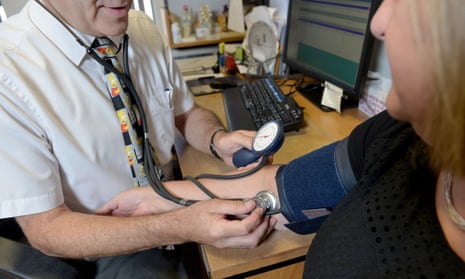Vacancies for GPs are at their highest ever level, research suggests.
A survey of 860 GPs for Pulse, a news magazine for general practitioners, found 12.2% of positions were currently vacant – up from 11.7% at the same time last year and from 2.1% in 2011, when Pulse started collecting the data.
The findings show 158 GPs (18%) have been unsuccessful in filling a vacancy in the past 12 months. In that period, the average time taken to recruit a GP partner has risen from 6.6 months to 7.4.
Pulse said some practices were having to hire non-GPs to fill the gaps, while others had closed after failing to recruit a GP partner.
A report from the Commons public accounts committee in April found there had been “no progress” in the previous year on increasing the number of GPs, despite a government target to recruit 5,000 more by 2020. The report said the number had actually fallen, from 34,592 full-time equivalent doctors in September 2015 to 34,495 in September 2016.
MPs said more trainees needed to be recruited and that existing GPs should be encouraged to stay on.
Prof Helen Stokes-Lampard, chair of the Royal College of General Practitioners, said of Pulse’s findings: “We know that practices across the country are finding it really difficult to recruit GPs to fill vacant posts, and the degree to which this problem has increased over the last six years is staggering.
“In the most severe cases, not being able to recruit has forced practices to close, and this can be a devastating experience for the patients and staff affected, and the wider NHS.”
Stokes-Lampard added: “At present, UK general practice does not have sufficient resources to deliver the care and services necessary to meet our patients’ changing needs, meaning that GPs and our teams are working under intense pressures, which are simply unsustainable.
“Workload in general practice is escalating – it has increased 16% over the last seven years, according to the latest research – yet investment in our service has steadily declined over the last decade and the number of GPs has not risen in step with patient demand … This must be addressed as a matter of urgency.”
